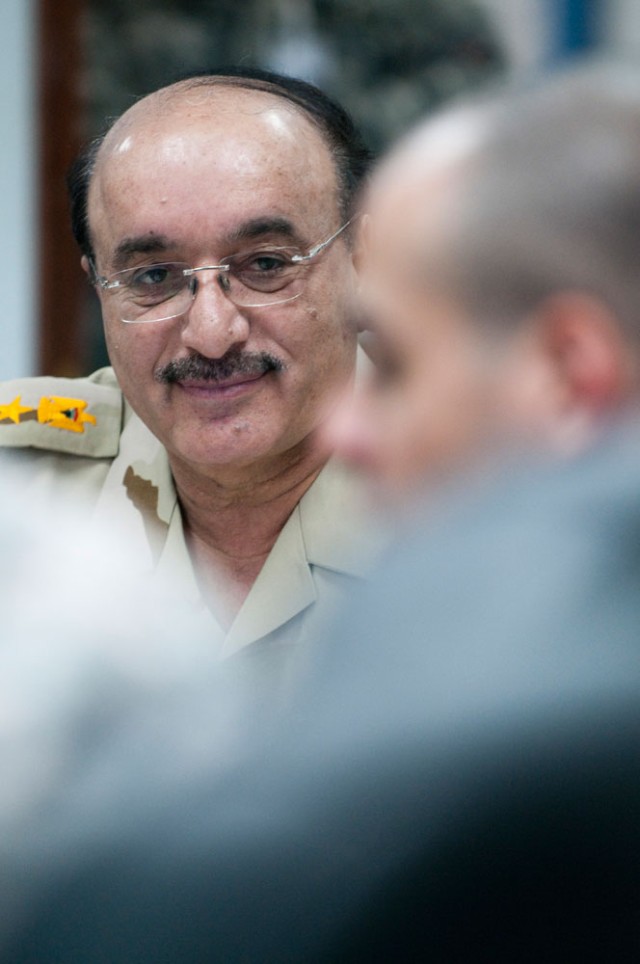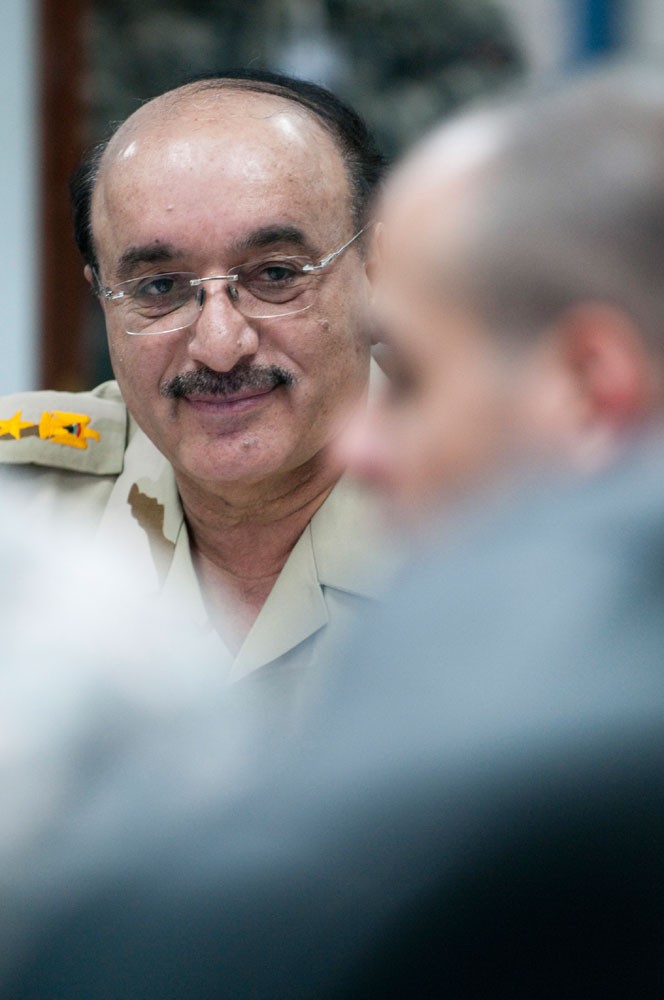
CAMP VICTORY - A dozen generals from the Iraqi Ground Forces Command and Iraq's Ministry of Defense sat at a conference table, examining print outs of a slide displaying the organizations that make up USF-I's Future Operations Planning Section.
Col. David Batchelor, chief of J35 Future Operations for USF-I, explained to them how the relationships depicted on the slide bring every war fighting function in the command to the table as an operational plan develops. His goal was to show that as a plan evolves it's vital for everyone involved in the execution of the final operation to participate, from the intelligence officers and maneuver units to the staff judge advocate.
Although members of FUOPS and planners for the IGFC meet often, this meeting here at Al Faw Palace, Sept. 15, was unique in that it included the senior planning leadership from the MOD, including Gen. Abboud Gunbar, the deputy chief of staff for operations. Lt. Gen. Ali Gaidan Majeed, commander of the IGF, was also on hand as Batchelor and his team advised them on fine-tuning the synchronization and synergy of the planning process between the two organizations.
The FUOPS team is well positioned to explain the process; they take on the plans that are 90 days from the expected execution date and develop them into operations, handing them off to the J33 Current Operations team 72 hours prior to execution.
"What we're trying to do is to get them to see how we do it; how we take a very holistic approach ... it's not just one plan, one brief," said Lt. Col. Michael Perkins, deputy chief of J35 FUOPS.
"It's plan a portion, brief the commander, get guidance, plan the next portion, brief the commander, get guidance," he said.
Perkins said they are also working to help the MoD improve their parallel planning with subordinate commands.
"The major benefit is when a plan turns into an order, everyone is already aware of it and that makes execution a lot simpler," he said, adding that it also gives subordinate units a chance to provide input, which helps the planners know that they are creating a plan that is feasible and suitable.
Staff Brig. Gen. Abdul Husain, the director of planning and training for the IGFC, said that although the ground forces and the MoD understand the importance of planning, the information Batchelor and his team presented showed the senior generals that joint, comprehensive planning will play a significant role in the future of Iraq's military as the U.S. draws closer to the December 2011 deadline to end its mission in Iraq.
"In 2005 we didn't have that kind of responsibility and now we are taking responsibility and are advancing our capabilities through training," he said.
Husain said USF-I and IGFC planners are now "speaking the same language," thanks to the training and the relationship they have built by working together since 2005.
Perkins has a very positive outlook on the future of Iraq's military planning and thought the meeting was a success.
"It codified that the process they're using is very similar to ours, so they know that they're doctrinally sound as far as course-of-action development and how a plan evolves," he said. "It also showed them that bringing more people in as plans are developed and sharing information results in a solid operational plan."
"It's not an order written in stove-pipe fashion that's sent out, creating resentment. Everyone has buy-in and it's a better product," he said.
Perkins said the capability of the Iraqi military is not in question, citing their success in executing the security plan for the parliamentary elections in March.
The major challenge now is in helping them develop consistency in their joint planning as well as their ability to develop plans at a rate on par with the operational tempo they are facing.
Perkins highlighted the improvements in the Iraqi planning process since the elections in March, explaining that USF-I once took the lead in developing plans, bringing them to the Iraqi military for feedback.
"It's quite the opposite now," he said. "They develop a plan and bring it to us and say 'hey, what do you think of this''"

Social Sharing